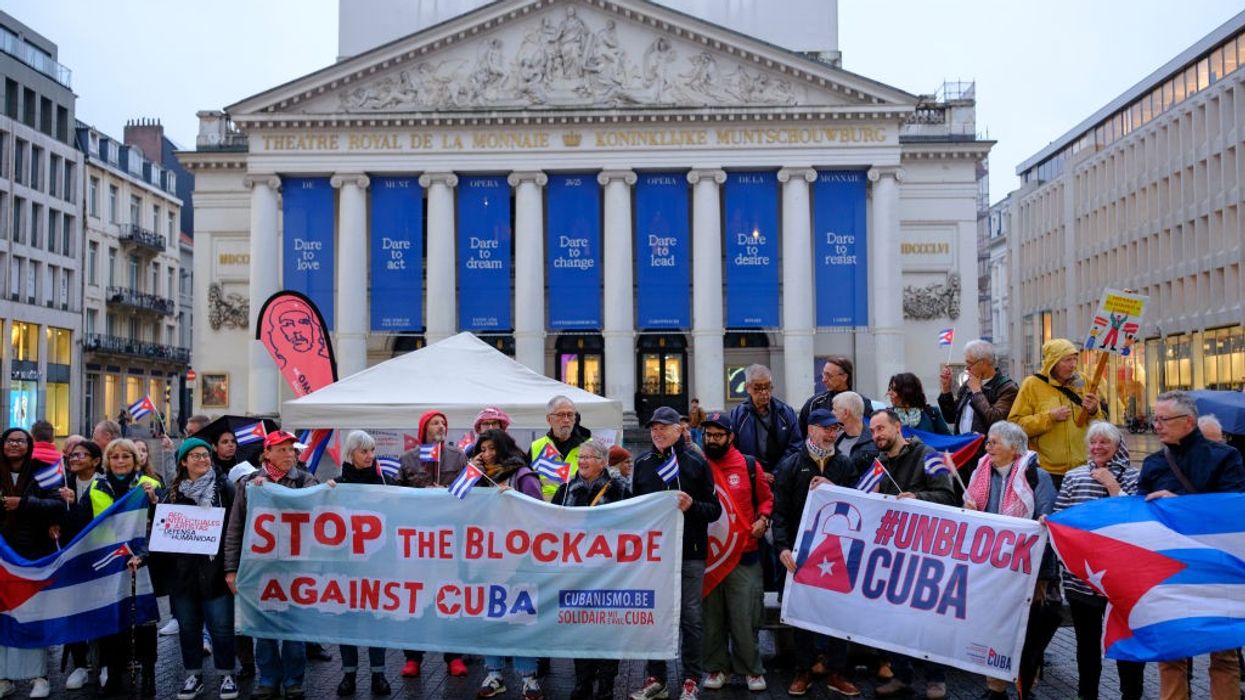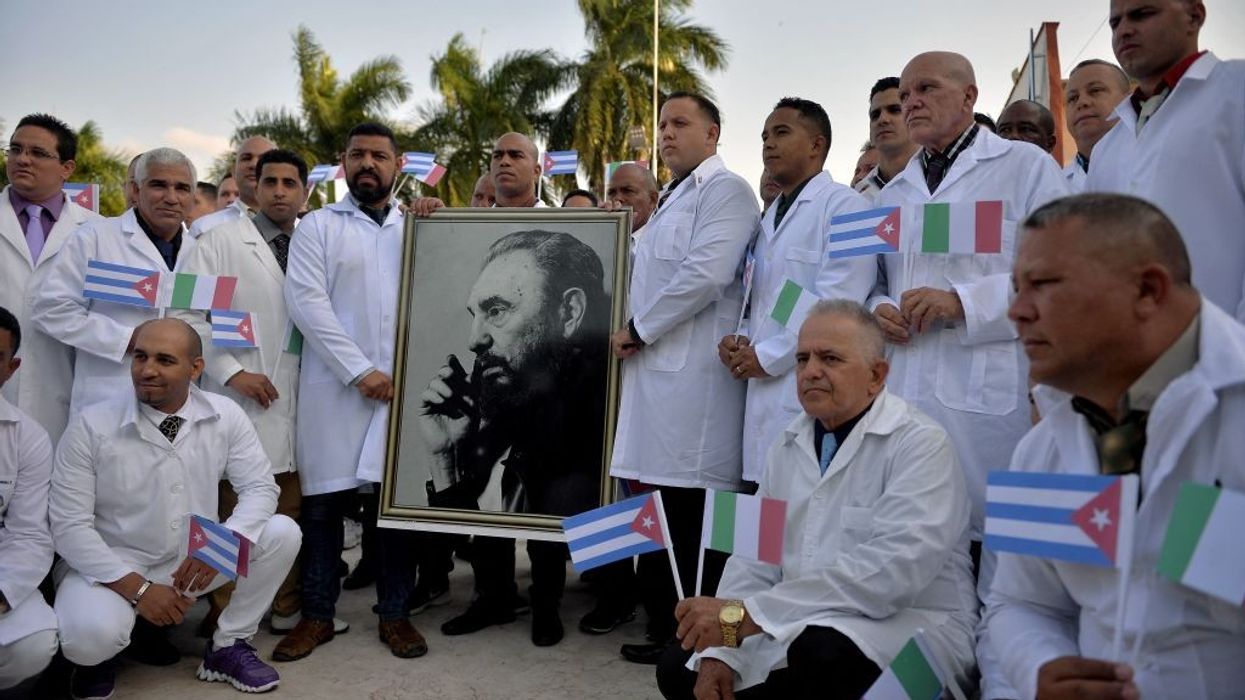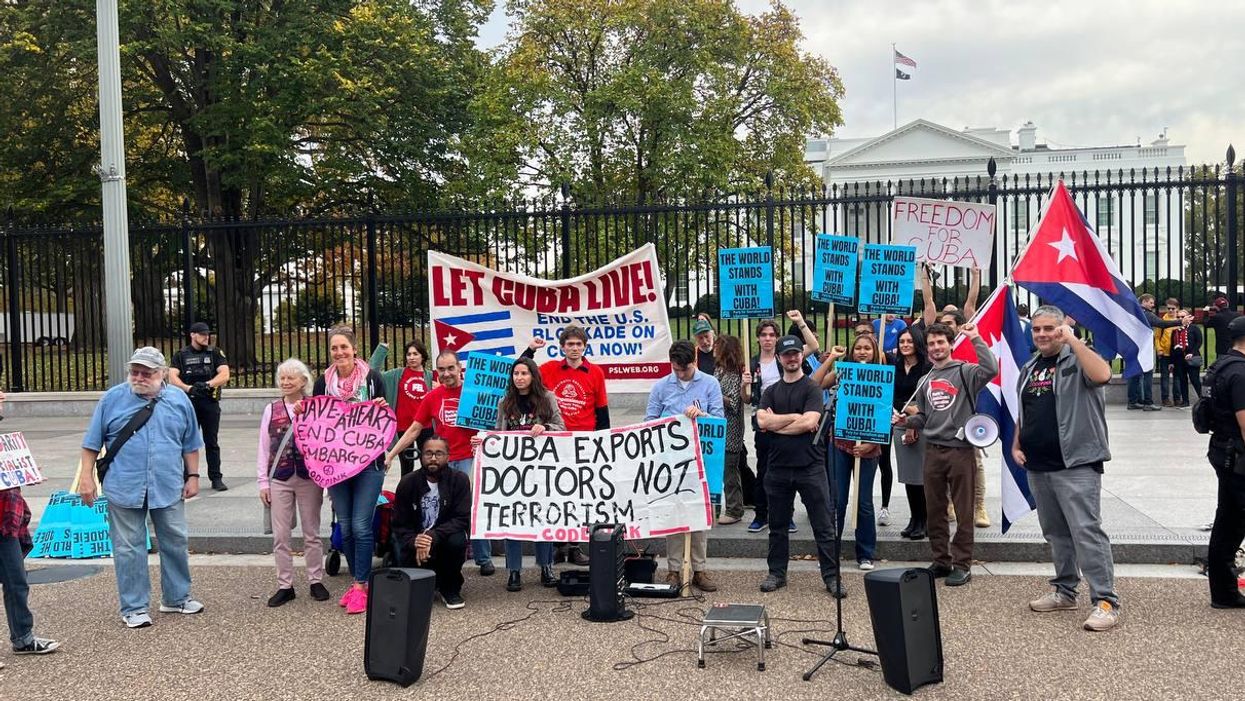'Immoral and Indefensible': Study Reveals Deadly Consequences of US Sanctions
"It is well past time that the U.S., E.U., and other powerful actors in the international community seriously reconsider this cruel and often counterproductive mechanism," said one of the study's authors.
A study published this week in the British medical journal The Lancet Global Health revealed that unilateral economic sanctions cause more than 500,000 excess deaths annually, prompting renewed calls for the United States to end its use of a form of collective punishment that claims roughly as many lives as all the world's current wars combined.
The study, authored by Francisco Rodríguez, Silvio Rendón, and Mark Weisbrot of the Center for Economic and Policy Research (CEPR), is the first to examine the "effects of sanctions on age-specific mortality rates in cross-country panel data using methods designed to address causal identification in observational data."
Studying the effects of sanctions on 152 countries between 1971 and 2022, the researchers "showed a significant causal association between sanctions and increased mortality," with "the strongest effects for unilateral, economic, and U.S. sanctions."
"We estimated that unilateral sanctions were associated with an annual toll of 564,258 deaths," the study's authors noted, "similar to the global mortality burden associated with armed conflict."
🚨 NEW REPORT: The myth that sanctions are a humane alternative to war is shattered. Sanctions imposed by single countries cause massive civilian deaths, with children under 5 hit hardest. bit.ly/Sanctions_Study
[image or embed]
— Center for Economic and Policy Research (@ceprdc.bsky.social) July 23, 2025 at 6:14 AM
Weisbrot, CEPR's co-director, said in a statement: "It is immoral and indefensible that such a lethal form of collective punishment continues to be used, let alone that it has been steadily expanded over the years. And sanctions are widely misunderstood as being a less lethal, almost nonviolent, policy alternative to military force."
The researchers found that children younger than 5 years old made up 51% of all sanctions deaths during the three-decade study period. More than three-quarters of all sanctions deaths between 1971-2022 were of children under age 15 and people over 60.
The study also noted the repeated failure of U.S. sanctions to deliver policy goals like regime change. However, such measures have caused economies to collapse, harming everyday people far more than ostensibly targeted leaders, who have the power and resources to shield themselves from the worst effects of sanctions.
"Sanctions often fail to achieve their stated objectives and instead only punish the civilian populations of the targeted countries," said Rodríguez. "It is well past time that the U.S., [European Union], and other powerful actors in the international community seriously reconsider this cruel and often counterproductive mechanism."
For six decades, the U.S. has imposed a crippling economic embargo on Cuba that has adversely affected all sectors of the socialist island's economy and severely limited Cubans' access to basic necessities including food, fuel, and medicines. The Cuban government claims the blockade cost the country's economy nearly $5 billion in just one 11-month period in 2022-23 alone. United Nations member states have perennially—and overwhelmingly—condemned the embargo.
In Venezuela, as many as 40,000 people died in 2017-18 due to U.S. sanctions, CEPR researchers found.
Some critics have noted that civilian suffering appears to be more than an incidental cost of U.S. sanctions—it is apparently often their very intent. Historian Arthur Schlesinger Jr.—a confidant of former President John F. Kennedy—claimed that JFK sought to unleash "the terrors of the Earth" on Cuba following Fidel Castro's successful overthrow of a U.S.-backed dictatorship, because "Castro was high on his list of emotions."
While the new study "found no statistical evidence of an effect" for United Nations sanctions, Mary Smith Fawzi and Sarah Zaidi conducted research for the U.N. Food and Agriculture Organization that was published in The Lancet in 1995 and revealed that as many as 576,000 Iraqi children died prematurely as a result of sanctions imposed by the U.N. Security Council—whose sanctioning capacity was heavily influenced by the United States—to target the regime of longtime Iraqi leader Saddam Hussein.
"Discussions in the 1990s on the effects on child mortality of sanctions on Iraq strongly influenced policy debates and were one of the main drivers of the subsequent redesign of sanctions on the government of Saddam Hussein," the authors of the new study wrote, citing Fawzi and Zaidi's research.
With Hussein's regime unmoved by the sanctions, Madeleine Albright, then U.S. secretary of state under President Bill Clinton, was asked if the human cost was too high. Albright infamously replied that "the price is worth it."



